X IDENTIFYING "BOTTOM POINTS" IN LEGISLATIVE THINKING
The 14th National Party Congress is a particularly important political event, of decisive significance to the future development of the country in a period of strong transformation entering a new era.
The draft Political Report has proposed guidelines, policies, major issues, with long-term strategic and directional significance, ensuring comprehensiveness, depth, practicality, feasibility, demonstrating a high sense of responsibility towards the Party, towards the people and towards the future development of the country. Among the main groups of tasks and solutions proposed in the draft, we are particularly interested in the group of tasks and solutions to perfect institutions and the group of tasks and solutions to perfect the socialist rule-of-law state of Vietnam.
The tasks and solutions for perfecting institutions are developed, supplemented, and emphasized in this draft: Accelerating the synchronous completion of institutions for rapid and sustainable national development, in which political institutions play a key and guiding role; economic institutions are the focus; institutions in other fields are important. Continuing to perfect the overall organizational model of the political system in the direction of streamlining, compactness, strength, efficiency, effectiveness, and efficiency, expanding development space; implementing the model of a 3-level political system and 2-level local government. Correctly resolving the relationship between the state - market - society, so that the market truly plays a decisive role in mobilizing and allocating resources.
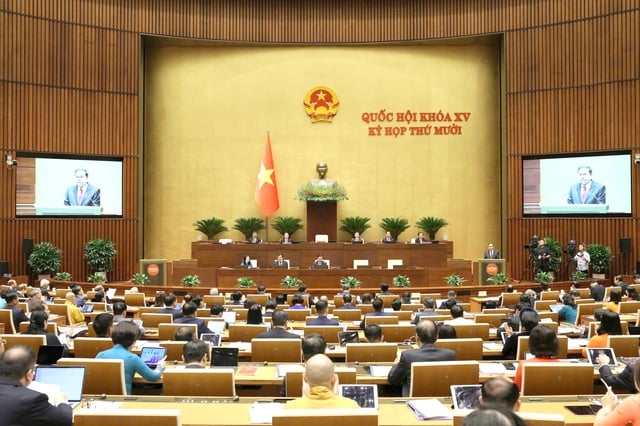
In recent times, Vietnam's law-making activities have achieved many outstanding achievements, and the National Assembly has become increasingly professional in the legislative process.
PHOTO: GIA HAN
First of all, it must be affirmed that in recent times, Vietnam 's law-making activities have achieved many outstanding achievements: the legal system is increasingly perfect, covering most areas of life; the National Assembly is increasingly professional in the legislative process; the role of people, businesses, and scholars is expanded in the policy participation process.
However, from the perspective of political and legal science, there are still basic "bottlenecks":
"Congestion" in legislative thinking: Law-making thinking is still heavily focused on management and administration, not yet shifting strongly to creative thinking and promoting development. The approach still tends to "legislate" management regulations instead of building an open legal framework for innovation, integration and digital transformation.
"Bogging" in legislative processes and techniques: Program planning, drafting, appraisal, and review are still unscientific, relying more on administrative experience than policy analysis and impact assessment. The situation of "making laws and amending laws at the same time" is still common, causing waste of resources and reducing the stability of the legal system.
"Bottlenecks" in institutional coordination: The relationship between agencies in the legislative process (from the Government, the National Assembly to the review and appraisal agencies) still lacks clear division of labor and control, leading to overlap and duplication.
"Bogging" in the mechanism for public consultation and criticism: Although there are regulations on public consultation, the implementation is still formal, lacking scientific depth, and there is no effective connection mechanism between researchers - policymakers - affected subjects.
These shortcomings show that, to build a modern rule-of-law state, Vietnam needs a comprehensive innovation in legislative thinking and law-making processes.
INNOVATION IN LEGISLATIVE THINKING - THE FOUNDATION FOR INSTITUTIONAL IMPROVEMENT
Innovation in legislative thinking is a prerequisite to overcome current bottlenecks. New legislative thinking needs to be built on three pillars:
Development and creation thinking: Law is not only a regulatory tool but also an "institutional driving force" of development. Each law must be designed to unlock resources, promote innovation, ensure fairness and protect human rights and civil rights in the digital age.
Rule of law thinking and power control: It is necessary to strongly shift from "management by administrative orders" to "governance by law", ensuring that all power is controlled by clear, transparent, and accountable legal mechanisms.
Integration and digital transformation thinking: Digital transformation must be considered the main axis of legislative reform, applying policy analysis tools, big data, and artificial intelligence in the legislative process, creating the foundation of "digital law".
To meet the requirements of building a socialist rule-of-law state in the new era, legislative methods and processes need to be innovated in a scientific, democratic, public, transparent and effective direction, with the following key contents:
Firstly, perfect the mechanism for formulating law-making programs, ensuring strategicity, based on scientific forecasts, avoiding the situation of "following situations" or "document backlog".
Second, innovate drafting methods based on policy assessment and legal impact assessment (RIA), using digital data and quantitative analysis to ensure feasibility, efficiency and transparency.
Third, strengthen the mechanism of social criticism, consultation with experts and the people, especially with draft laws directly related to human rights, businesses, science and technology.
Fourth, applying digital technology in legislation: building a "digital National Assembly", "electronic legislative portal", and an open database on policies and laws, thereby increasing transparency and reducing costs and time for law making.
Fifth, clearly establish the political and legal responsibilities of agencies and individuals in each stage of the legislative process; build a mechanism to inspect, monitor and evaluate the quality of documents after promulgation.
Innovation in thinking and improvement of the law-making process is one of the pillars of the process of perfecting the socialist rule-of-law state of Vietnam , which General Secretary To Lam has repeatedly emphasized: "Law must go first, pave the way and lead development."
The task of perfecting the Vietnamese socialist rule-of-law state is developed, supplemented and emphasized in this draft: Innovating thinking, perfecting methods and processes of law-making to meet the requirements of rapid and sustainable development of the country in the new era. Continuing to innovate, building a professional and modern administration, drastically reducing administrative procedures; shifting the state from "asking - giving" to provide public services to the state of "proactively" serving and providing public services to people and businesses. Continuing to perfect the functions, tasks, powers, organizational structure, payroll, and working relationships between government levels. This is a completely correct orientation, demonstrating a strong reform mindset and consistent with the requirements of building a modern, transparent, and people-centered rule-of-law state.
I believe that, with the theme of the 14th National Party Congress, the contingent of cadres, party members, intellectuals, experts, businessmen, artists and all classes of people will promote their intelligence, sense of responsibility, and make practical and concrete contributions. From there, we will contribute together with the entire Party, people and army to realize the aspiration to build a strong, prosperous and happy Vietnam ; self-reliant, confident and making strong progress in the era of national development.
Source: https://thanhnien.vn/niem-tin-gui-dang-doi-moi-tu-duy-lap-phap-de-hoan-thien-nha-nuoc-phap-quyen-185251103211807944.htm


![[Photo] Ho Chi Minh City Youth Take Action for a Cleaner Environment](https://vphoto.vietnam.vn/thumb/1200x675/vietnam/resource/IMAGE/2025/11/04/1762233574890_550816358-1108586934787014-6430522970717297480-n-1-jpg.webp)

![[Photo] The road connecting Dong Nai with Ho Chi Minh City is still unfinished after 5 years of construction.](https://vphoto.vietnam.vn/thumb/1200x675/vietnam/resource/IMAGE/2025/11/04/1762241675985_ndo_br_dji-20251104104418-0635-d-resize-1295-jpg.webp)

![[Photo] Ca Mau "struggling" to cope with the highest tide of the year, forecast to exceed alert level 3](https://vphoto.vietnam.vn/thumb/1200x675/vietnam/resource/IMAGE/2025/11/04/1762235371445_ndo_br_trieu-cuong-2-6486-jpg.webp)
![[Photo] Panorama of the Patriotic Emulation Congress of Nhan Dan Newspaper for the period 2025-2030](https://vphoto.vietnam.vn/thumb/1200x675/vietnam/resource/IMAGE/2025/11/04/1762252775462_ndo_br_dhthiduayeuncbaond-6125-jpg.webp)
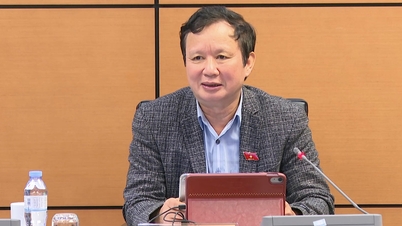



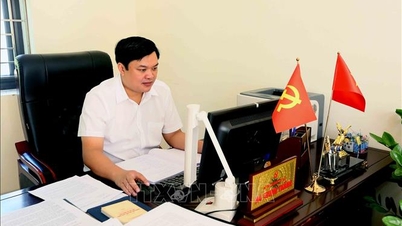

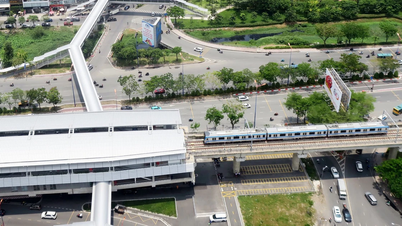

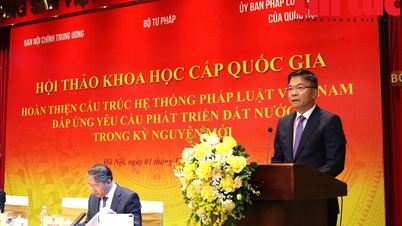
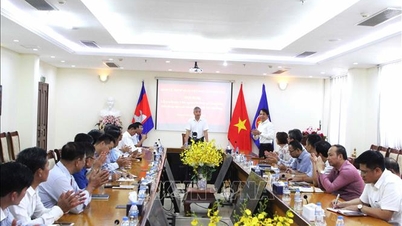
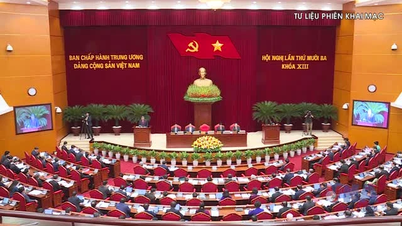

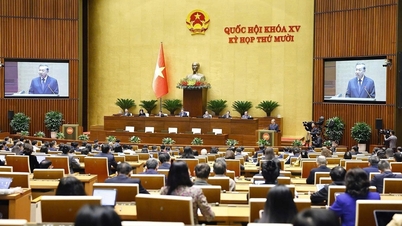
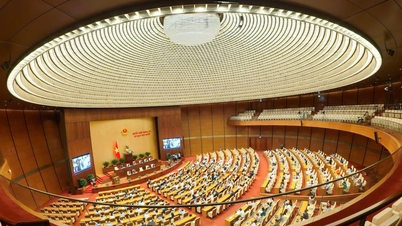

![[Video] 5 specific requests for comments on the draft documents of the 14th Congress](https://vphoto.vietnam.vn/thumb/402x226/vietnam/resource/IMAGE/2025/11/05/1762302892217_dung01-03-26-03still014-jpg.webp)













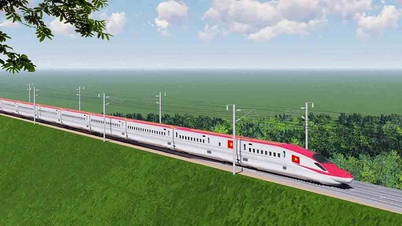





































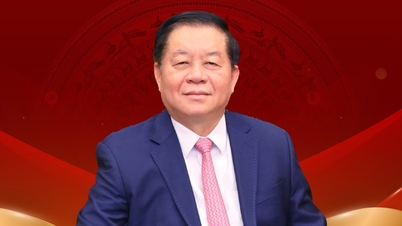
















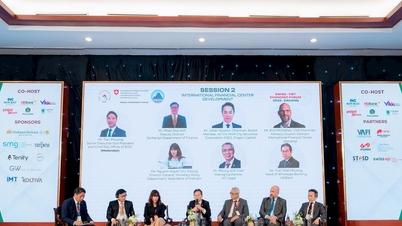















Comment (0)